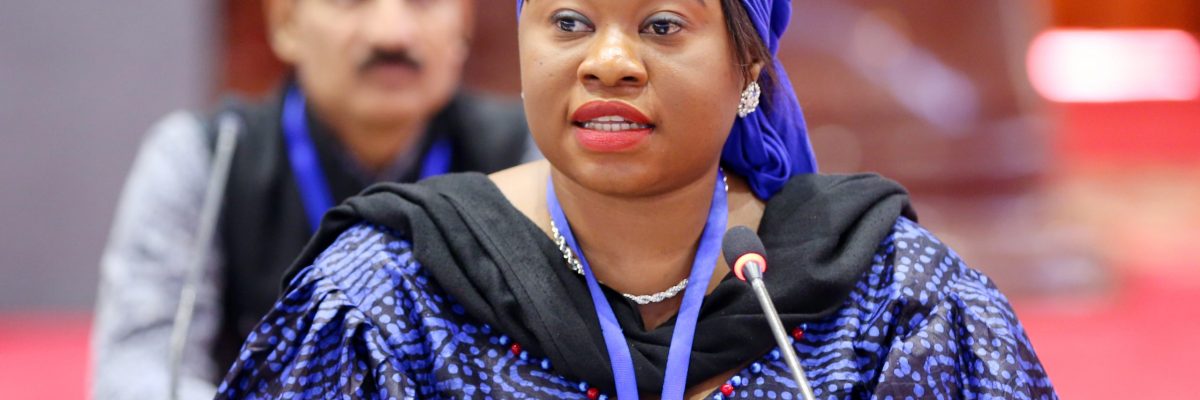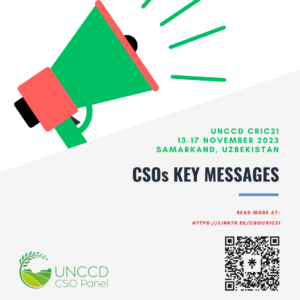LDN and climate change linkage
Madagascar, Lebanon, Belarus and Guyana shared lessons learnt in the operationalization of the voluntary LDN Target Setting Programme supported by the Global Mechanism from their respective perspectives.
These countries set out to “domesticate” LDN by integrating it into their policies and/or strategies, particularly the NAPs. In this process some countries clearly articulated the importance of the involvement of civil society organizations, and even decentralized the LDN into the local planning processes. Inclusive and decentralized approaches that involve women, youth, indigenous peoples and local communities need to be ensured to effectively achieve the LDN.
There is an obvious link between LDN and the National Determined Contributions (NDCs) under the UNFCCC. Of greatest significance in this context are the adaptation priorities such as land degradation, agriculture, forestry etc. However, in many countries these processes are undertaken separately.
There is a need to build on real experiences to avoid continuous elaboration of new plans or strategies without reference to effective implementation or past failures. Including indigenous peoples and local communities in the implementation of the DLDD will strengthen the obvious links with climate change mitigation and adaptation processes within various countries.
The future of the SPI
The SPI’s future existence and work was at the core of CST discussions today. Delegates welcomed the outcomes and recommendations of the internal assessment of the SPI. They underlined some concerns, mainly related to the involvement of the CST in the SPI’s work and, increasing exchange between all stakeholders. Also of concern was the need to build on the outputs and results of the SPI, and the work of other international platforms in order to not ‘reinvent the wheel’, as well as the need to fill the financial gap and to provide the necessary means for the SPI to do its work.
ICARDA recommended enhancing SPI collaboration with scientific institutions and proposed that CGIAR will be accepted as member observer. Furthermore, civil society reminded the CST of their wish to seize the opportunity to increase the number of observers to the SPI, so as to improve non-state actors’ involvement in the SPI work.
The SPI’s work program for 2018-2019 was appreciated by delegates, who also expressed their concern that more attention should be given by the SPI to issues related to drought and sand storms.
Civil society expressed its concern that the contribution of local action and local actors should be considered by Parties when elaborating their plans to achieve their LDN targets.
Finally, the establishment of the knowledge hub of the UNCCD was welcomed by delegates, who emphasised the need to better manage the different kinds of information available on the platform. The platform should also provide access to national reports, as far as it will be possible, and allow countries to update their national reports. Delegates recommended that scientific documents elaborated by the CSO Forum should be uploaded to the knowledge hub. Delegates highlighted WOCAT contribution to best practices and indigenous knowledge sharing.
Women striving for ownership over land – Putting the VGGTs into practice
Access to, ownership and control over land is inherently part of a successful implementation of LDN and sustainable land management. In particular, women’s land use rights are fundamental as they are the ones working on the land, and thus, putting LDN into practice. For many women around the world, it is important to feel secure about their land ownership and to have a legal recognition for the use of land-based resources.
There are numerous examples of community-driven initiatives to strengthen women’s land tenure security. They illustrate the importance of recognizing women’s land rights in sustainable land use and the implementation of LDN. Access to, ownership and control over land for women is a prerequisite for realizing SDG 15.3, implementing LDN and achieving sustainable land use in a meaningful way.
These approaches are also the perfect illustration of holistic implementation of the SDGs and the intention to Leave No One Behind, as they directly contribute to SDG targets 1.4, 2.3, 5a, 10.1, 16.7 and 17.6.
The Voluntary Guidelines on the Responsible Governance of Tenure of Land, Fisheries and Forests in the Context of National Food Security (VGGT) embrace these land governance approaches. The guidelines stress the importance of good land governance and strengthen legitimate land tenure rights of especially women and small-scale farmers, pastoralists, youth, indigenous peoples and poor people.
The VGGT was formulated in 2012 after extensive consultations with all stakeholder groups and were adopted by the FAO Council and the UN member states as a response to the land (use) rights insecurities of local communities globally. The guidelines provide governments with guidance on how to ensure sound land governance, which is crucial when restoring lands and implementing LDN. Adopting the VGGT in the future Strategic Framework of the UNCCD, National Action Plans and LDN target setting processes would contribute to more effective and sustainable implementation of the UNCCD.






